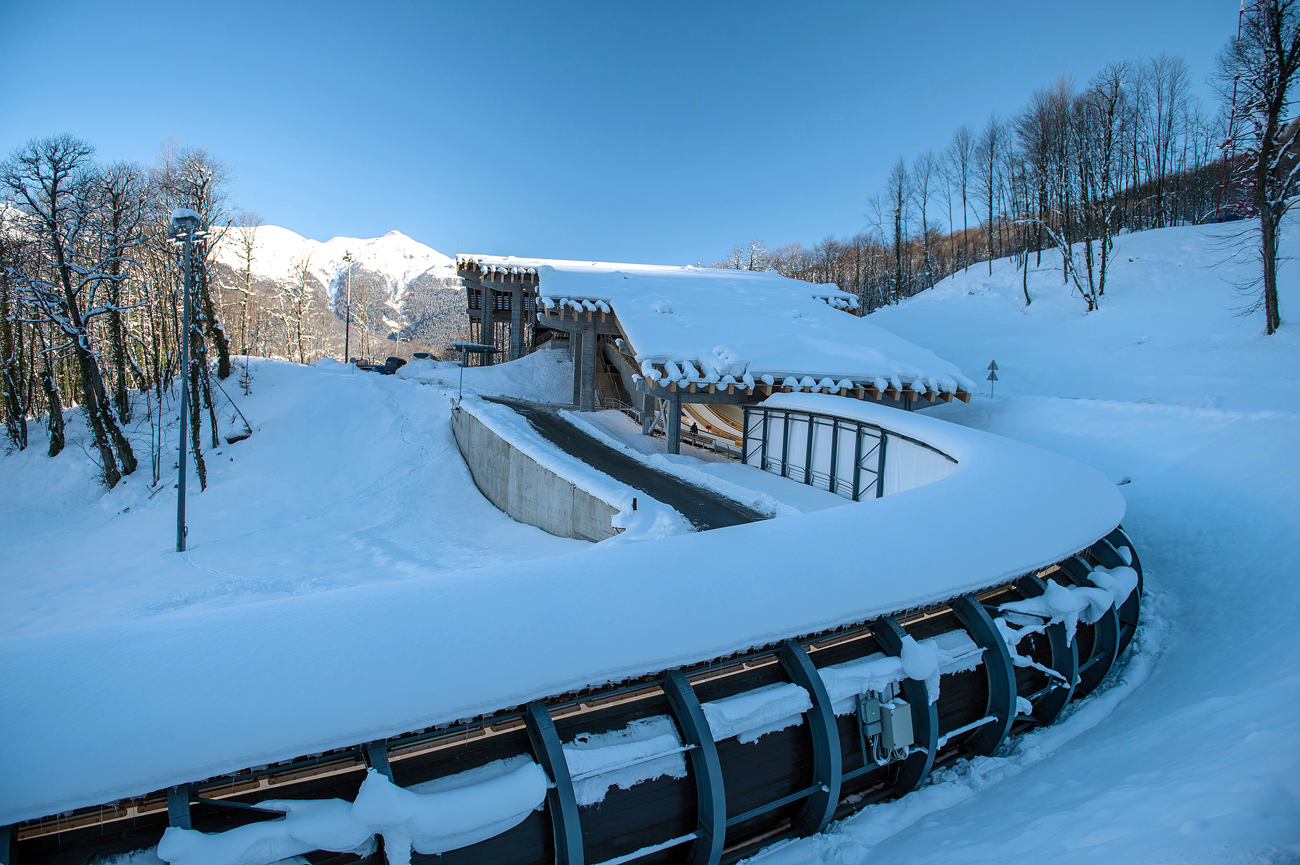
Russian presidential press secretary Dmitry Peskov has said that the decision was politicized. Photo: "Sanki" bobsleigh complex in the Adler district of Sochi.
Mikhail Mokrushin/RIA NovostiAlmost a week has now passed since the publication of Richard McLaren's new doping revelations on Dec. 9 and Russia has encountered its first real consequences. On Dec. 13 the International Bobsleigh and Skeleton Federation (IBSF) canceled the world championships supposed to take place in Sochi in February 2017.
Russian presidential press secretary Dmitry Peskov has said that the decision was politicized. But was it legal and will Russia be able to challenge the cancelation of this large tournament in court, a tournament that was supposed to start in two months?
Yes. The IBSF has that right since, like other federations, it is an autonomous and independent institute. Sports federations can, for example, change competition rules for their sport, disqualify and rehabilitate athletes, as well as confirm and change the locations where the championships are held.
Sochi received the right to hold the world championships during the IBSF congress in Gdynia, Poland in June 2013. Back then the resort city, which was preparing to host the first winter Olympics in Russian history, came out on top in competition with several top bobsleigh locations: Whistler, Canada; Lake Placid, U.S. and Altenberg, Germany.
The delegates at the congress were obviously impressed by the recently constructed bobsleigh run called Sanki, which leading athletes had tested in November 2012. In 2013 the Olympic track hosted the first World Cup stage and in Poland it was awarded the world championships.
No one is complaining about the track today – the cancelation of the championships was a result of other circumstances. "The current climate would make it nearly impossible to appreciate the efforts of the Organizing Committee... or the quality of the Sanki Sliding Center." Behind this ambiguous phrase posted on IBSF's official site it is not hard to detect the organization's reaction to the McLaren report, whose second part was presented on Dec. 9 in London.
After the Canadian sports lawyer heading the independent investigation again accused Russia of creating a state-sponsored doping system, two of the world's leading skeleton racers – Sochi Olympic champion Elizabeth Yarnold from the UK and current world champion Martin Dukurs from Latvia – called on the world championships in Sochi to be boycotted. After Dukurs the whole Latvian team, one of the strongest bobsleigh-skeleton forces in the world, refused to go to Sochi. Later the South Korean national team also joined the boycott.
Officially, the new location still has not been selected. However, it appears that the championships will take place in Konigssee, Germany. General Secretary of the German Bobsleigh and Luge Federation Thomas Schwab, who had proposed to relocate the tournament to Germany before IBSF's official release, said that IBSF is considering this possibility.
For now there has been no talk of the disqualification of the Russian national team or its individual athletes. At the same time, such a scenario cannot be excluded since along with his report Richard McLaren sent information about the fake samples provided by some Russian athletes to the sports federations. The issue of banning the athletes because of doping falls within the competence of the federations.
From the viewpoint of sports law, the international federation bears no obligations before the Russian side because the right to cancel the athletic competition at any time is written into its charter, explains sports lawyer Valery Fedoreyev. In his words, compensation is possible only in the event that advertising and sponsorship contracts signed for the championships are dissolved. However, this is determined through civil proceedings and has no relation to sport.
Russia can file a lawsuit at the Court of Arbitration for Sport (CAS), but its chances of winning are minimal, believes Fedoreyev. "The CAS does not analyze the reasons for the decision. It just sees whether procedural norms have been violated or not. The federation acts in accordance with its charter and the CAS does not have any reasons to change the federation's decision."
All rights reserved by Rossiyskaya Gazeta.
Subscribe
to our newsletter!
Get the week's best stories straight to your inbox